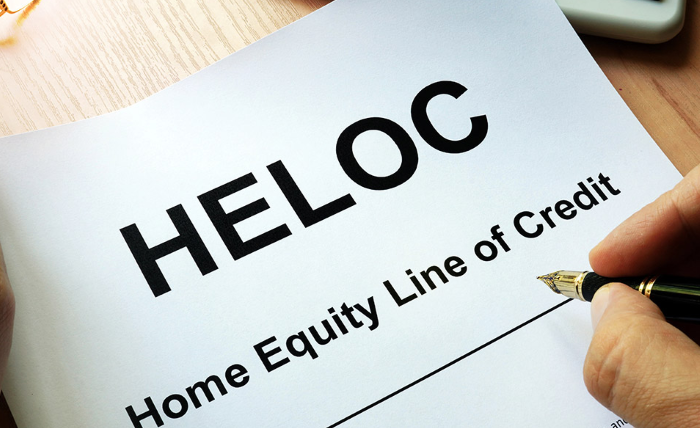When it comes to leveraging the value of your home, two popular options stand out: home equity loans and home equity lines of credit (HELOCs). While they may sound similar, these financial tools serve different purposes and come with distinct benefits and considerations. Whether you’re planning a major renovation, consolidating debt, or tackling unexpected expenses, understanding these differences can help you make the best financial decision for your needs.
In this post, we’ll break down the similarities and differences between home equity loans and HELOCs, explore how they work, and discuss which option might be right for you.
What Are Home Equity Loans and HELOCs?
Home Equity Loans
A home equity loan, often referred to as a “second mortgage,” allows you to borrow a fixed amount of money using the equity in your home as collateral. Equity is the difference between your home’s market value and the outstanding balance on your mortgage. With a home equity loan, you receive the funds as a lump sum and pay it back over a specified period, typically with a fixed interest rate.
Key features of home equity loans:
- Fixed interest rate:Your monthly payments remain consistent, making budgeting easier.
- Lump sum payment:Perfect for one-time expenses like major renovations or medical bills.
- Set repayment term:Usually 5 to 15 years, but it varies by lender.
Home Equity Lines of Credit (HELOCs)
A HELOC, on the other hand, works more like a credit card. It provides a revolving line of credit that you can draw from as needed, up to a predetermined limit. You only pay interest on the amount you borrow, and the repayment terms can vary, often starting with a draw period followed by a repayment period.
Key features of HELOCs:
- Variable or fixed interest rates:Most HELOCs initially have variable rates, though some lenders offer fixed-rate options.
- Revolving credit line:Borrow as much or as little as you need during the draw period.
- Flexibility:Ideal for ongoing expenses like home improvements or business investments.
Comparing Home Equity Loans and HELOCs
While both options can tap into your home’s equity, they differ significantly in terms of structure, flexibility, and cost.
1. How You Receive Funds
- Home Equity Loan:Offers a one-time lump sum. Ideal for singular, large expenses.
- HELOC:Provides a credit line you can access as needed. Great for recurring costs or projects with unpredictable budgets.
2. Interest Rates
- Home Equity Loan:Typically comes with fixed interest rates, ensuring consistent monthly payments.
- HELOC:Generally starts with variable rates, which may fluctuate based on the market, though some lenders also allow fixed-rate conversions.
3. Repayment Period
- Home Equity Loan:Requires regular payments of principal and interest over a set term.
- HELOC:Often begins with a draw period (typically 5-10 years) where you pay interest only, followed by a repayment period (10-20 years) where principal payments are required. Some HELOCs offer interest-only repayment options during the draw period. Use an interest only HELOC calculator to better understand your finances.
4. Best Use Cases
- Home Equity Loan:Best for distinct one-time expenses like debt consolidation, purchasing a vehicle, or funding a child’s education.
- HELOC:Ideal for ongoing or variable expenses like renovations, medical bills, or starting a small business.
Pros and Cons of Home Equity Loans
Pros
- Predictable monthly payments.
- Fixed interest rates safeguard against market fluctuation.
- Ideal for borrowers who prefer a straightforward, one-time borrowing structure.
Cons
- Lack of flexibility if additional funds are needed in the future.
- Immediate repayment begins after borrowing the lump sum.
Pros and Cons of HELOCs
Pros
- Flexible borrowing and repayment options.
- Only pay interest on the amount drawn.
- Useful for managing varying expenses over time.
Cons
- Variable rates can create unpredictable costs.
- Mismanagement can lead to over-borrowing and debt accumulation.
Is a Home Equity Loan or HELOC Right for You?
Choosing the best option largely depends on your financial goals and borrowing needs. Here are some factors to consider when deciding which one works best for you:
- Do you need a large lump sum for a major expense?A home equity loan may be your best bet.
- Do you foresee ongoing or unpredictable costs?A HELOC provides more flexibility.
- Are you comfortable with fluctuating interest rates?If not, a fixed-rate home equity loan might be the safer option.
- What’s your comfort level with risk?Consider how changes in income or interest rates might affect your ability to repay the loan.
Final Thoughts
Both home equity loans and HELOCs can be valuable financial tools to leverage the equity in your home. While a home equity loan provides certainty with fixed payments, a HELOC offers flexibility for ongoing needs. Understanding their differences, benefits, and potential pitfalls will empower you to make the best decision for your financial health.

